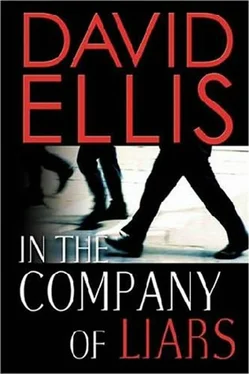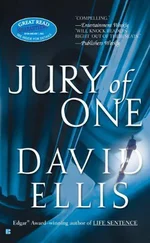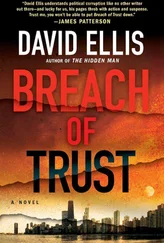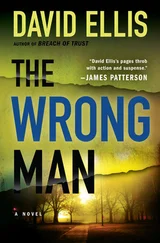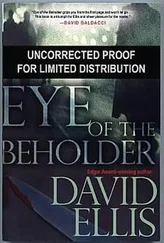Haroon takes the compliment in stride. “I eat well and exercise when I can,” he says, a line he’s heard in the States.
Shiels smiles at that.“Lakad mada waket tawil,”he says.
“Ten years, at least,” Haroon calculates. “Too long.Ladayka awlad?”
Shiels nods. “An eight-year-old boy, and my daughter’s six.”
Haroon smiles. It’s hard to imagine Irving Shiels with a wife and children, but he is a long way from Pakistan, and maybe Haroon never knew the real man.
“This has to look like a suicide, Zulfi,” says Shiels. “Everyone has to think Allison Pagone killed herself.”
“Everyone will think she killed herself,” Haroon says.
“When this is ending, you’ll be stopped at the airport.” Shiels looks at him. “There’s nothing we can do about that. We’ve had to keep you on the ‘watch’ list to keep your cover.”
“Understood.”
“It will be one of my agents. Just be ready with the answers to the questions. She’ll do a song and dance for the benefit of Customs, but she’s been instructed to let you go.”
“I am sure it will be a memorable experience,” Haroon says.
Irv Shiels laughs, a forced effort, a brief smile that returns to stoicism almost immediately. Shiels was never particularly animated.
“Tawakka al hazar, sayyedee,”Haroon says. Stay safe.
“You do the same.” Shiels presses his hand in Haroon’s.
“Al selem, lakan abadan lil istislam.”
Haroon leaves the vehicle and heads for the exit.Peace, Shiels said to him,but never surrender.
ONE DAY EARLIER
MONDAY, FEBRUARY 9
Strange as it may seem, it’s plausible.” Paul Riley speaks in a hushed voice to Allison, though they are in a conference room with the door closed. “The likelihood of an acquittal is remote. So sooner or later, you’d fall into government hands. At that point, they would expect you to play whatever hand you could. Believe it or not, you’re safer this way, Allison.”
Allison starts, something like a nervous laugh.
“The timing is a bit concerning, I suppose,” Paul adds.
“Very.” Allison leaves her chair and paces around the long table. The contrast between this FBI office and the ones at Paul Riley’s law firm is staggering. “I want to do it now. They’re saying, ballpark, mid-May.”
“They must have some reason.” Paul sighs. “Not that they’ll tell us.”
Paul looks awful, out of sorts. He must be utterly exhausted. Since last night, when Allison reached him, and through a long day today-it’s close to eight in the evening-Paul has probably only slept a handful of hours. About twenty-four hours ago, he was probably dozing in front of a television on a lazy Sunday, waiting for a busy week of court appearances and meetings with clients. Instead, he has spent nearly twenty hours straight digesting a very complicated situation and attempting to frame a solution.
“Let’s go back in,” Allison says.
Jane McCoy sits in one of the chairs in Special Agent-in-Charge Irving Shiels’s office. Harrick paces about the room. Shiels is on his cell phone. United States Attorney Mason Tremont is reading the news coverage of Sam Dillon’s murder.
“What a mess,” Tremont says. This is the first time McCoy has met Tremont. He’s been U.S. attorney since the new governor came in, about four years ago. He is the first African American to hold the position. Word is, he was a big fund-raiser for the governor, but the word also is that he has done the office proud. He’s not a bad-looking guy, distinguished and fit in his mid-fifties, if a little too sober.
“She has to take this deal,” Harrick says, lapping the room. He’s wearing a sportcoat and tie today, a step up for him.
A knock on the door, and Allison Pagone enters with her lawyer, Paul Riley. Riley used to be an AUSA, part of the federal family, but he made his name prosecuting that mass murderer, Terry Burgos, back when Jane McCoy was in grad school.
Mason Tremont puts down his paper. Irv Shiels kills his cell phone.
“We have a deal in principle,” Riley announces. “We have to see it all in writing, formally, of course.”
“We’ll have it done very soon,” says Mason Tremont. “Immunity letter for Mateo Pagone, affidavits, the works.”
“Not just immunity,” Allison says. “He doesn’t even have to talk to you.”
“I understand,” says Tremont. “It’s a clean deal, Mrs. Pagone. He walks and doesn’t talk.”
“Good.” Allison claps her hands together. “So who’s going to kill me?”
McCoy laughs at the bluntness of her comment. She removes a photo from a file and shows it to Allison. It is a photograph of Ramadaran Ali Haroon.
Allison recoils-not, McCoy assumes, because he’s unsightly, because in truth Haroon is pretty handsome, but because he’s from the Middle East. You can talk about political correctness all you want, but Allison and her lawyer are already probably thinking along these lines, and now they’re surely suspecting that this operation involves international terrorism.
“The man in this photograph,” McCoy says, “is working with us.”
That will be the extent to which McCoy elaborates. This is all Allison Pagone needs to know. Ramadaran Ali Haroon is an undercover operative for the CIA, a non-official cover agent, but this is not something she would ever share with Allison. No, Allison Pagone cannot know Haroon’s name or his specific occupation, or even his employer. All she needs to know is that this unidentified man in the photograph is a friend, a friend who will be dispatched by Larry Evans to kill her at some point down the road.
“This guy is some kind of undercover agent?” Allison asks, nodding at the photograph.
“He’s working with Larry Evans, among others,” McCoy answers, though it is not really an answer to the question posed. “He’s calling the shots, Mrs. Pagone. He will insist that you be eliminated, and he will insist that he be the one who does it.”
“He’s supposed to kill me but make it look like a suicide.”
“Yes,” McCoy says. “The last thing they want anyone to think is that you were murdered. They want it to look like you were distraught, guilt-stricken, that kind of thing.”
Allison looks skeptical. McCoy had thought this idea had already been accepted.
“You were in theater, right?” Harrick says to Allison, sensing her hesitation as well. “So this is playacting. This man in the photograph will come in and pretend to kill you and make it look like a suicide.”
“I just-it seems so hard to believe that anyone wouldbelieve that.”
“Who’s ‘anyone’?” McCoy shrugs. “All that Larry Evans will know is what he hears through his eavesdropping device. It’s audio, not video. He’ll hear a man he trusts”-McCoy shakes the photograph of Ram Haroon-“he’ll hear this man enter your house, he’ll hear you scream or whatever, he’ll hear a struggle, he’ll hear this man forcing you up to your bathroom, he’ll hear a gun go off-a gun with blanks, of course, but he won’t know that-and then he’ll hear his trusted partner leave your house, and you just have to keep quiet for a few hours. Larry Evans will have no reason to think youaren’t dead.”
“I guess,” Allison says.
“And then Agent Harrick and I, we’ll come storming into your place early that next morning, and we’ll find you ‘dead,’ and Larry Evans will still be listening. He’ll hear me say, ‘Allison’s dead,’ and he’ll hear my partner say, ‘Oh, yeah, she’s dead, all right.’ And we will come to the conclusion that you committed suicide. I will say, loud and clear for Larry Evans to hear, that this is all my fault, because I had been squeezing you for information on the bribery scandal, and because I threatened Mat. Poor me. Poor you.”
Читать дальше
